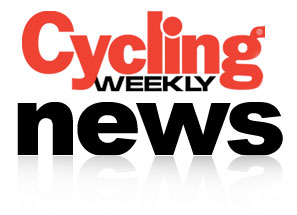UCI names five riders over passport anomalies

The UCI has finally revealed the names of the riders they intend to start disciplinary proceedings against after discovering anomalies in their biological passport values.
The five are: Spain’s Igor Astarloa, Ruben Lobato Elvira and Ricardo Serrano Gonzalez plus Italians Pietro Caucchioli and Francesco De Bonis.
“After having informed all the parties concerned, the International Cycling Union announces that disciplinary procedures have been requested against the [above] riders for apparent violation of the Anti-Doping Rules on the basis of the information provided by the blood profile in their biological passports,” the UCI said in a statement.
“The UCI is confident that the information obtained from the new approach, based on the indirect detection of doping practices, will greatly reduce the possibility of that cheating in the future by any athlete who decides to disrespect the rules of the sport remains undetected.”
Astarloa was the 2003 world champion, winning in Hamilton, Canada, but has struggled to ever repeat that kind of performance. He was sacked by the Milram team last year for alleged irregular blood values. He rode for the Amica Chips team in Italy this year but the team is close to closure after financial problems.
Ricardo Serrano rides for the Fuji-Servetto team after a spell at Tinkoff Credit Systems and won the first stage of the Tour de Romandie in April. Ruben Lobato Elvira spent five years at Saunier Duval but is without a team this year. De Bonis rode for Gerolsteiner in 2008 and joined the Diqiugiovanni team this year with Davide Rebellin. The Italian veteran failed a anti-doping test for CERA at the Beijing Olympics and is facing a two-year ban.
Caucchioli was third overall in the 2002 Giro d'Italia while riding for the Alessio team before spending four years at Credit Agricole without a win. He was supposed to ride this year's Giro d'Italia but was suddenly pulled from the team just before the start in Venice. He was the only rider likely to ride this year's Tour de France.
The latest race content, interviews, features, reviews and expert buying guides, direct to your inbox!
Both the Diquigiovanni team and Caucchioli's Lampre team claimed that the passport anomalies arose before they joined them at the start of 2009. Lampre said Caucchioli's was related to a test done during last years Tour of Poland. Both teams suspended the two Italians.
Despite failing to spot other high-profile doping cases of the last 12 months, including the CERA positives of Riccardo Ricco, Leonardo Piepoli, Bernhard Kohl, Stefan Schumacher and Rebellin, the UCI claimed the passport was a major deterrent against doping in cycling.
“The UCI is aware that today’s announcement is a very important step in the battle against doping. The UCI is proud, once more, to be the pioneering international federation in this field. After the introduction of blood tests in 1997 and the EPO detection test in 2001, it is now through the biological passport that the UCI is confronting the scourge of doping,” the UCI said in its statement.
Founded in 1891, Cycling Weekly and its team of expert journalists brings cyclists in-depth reviews, extensive coverage of both professional and domestic racing, as well as fitness advice and 'brew a cuppa and put your feet up' features. Cycling Weekly serves its audience across a range of platforms, from good old-fashioned print to online journalism, and video.